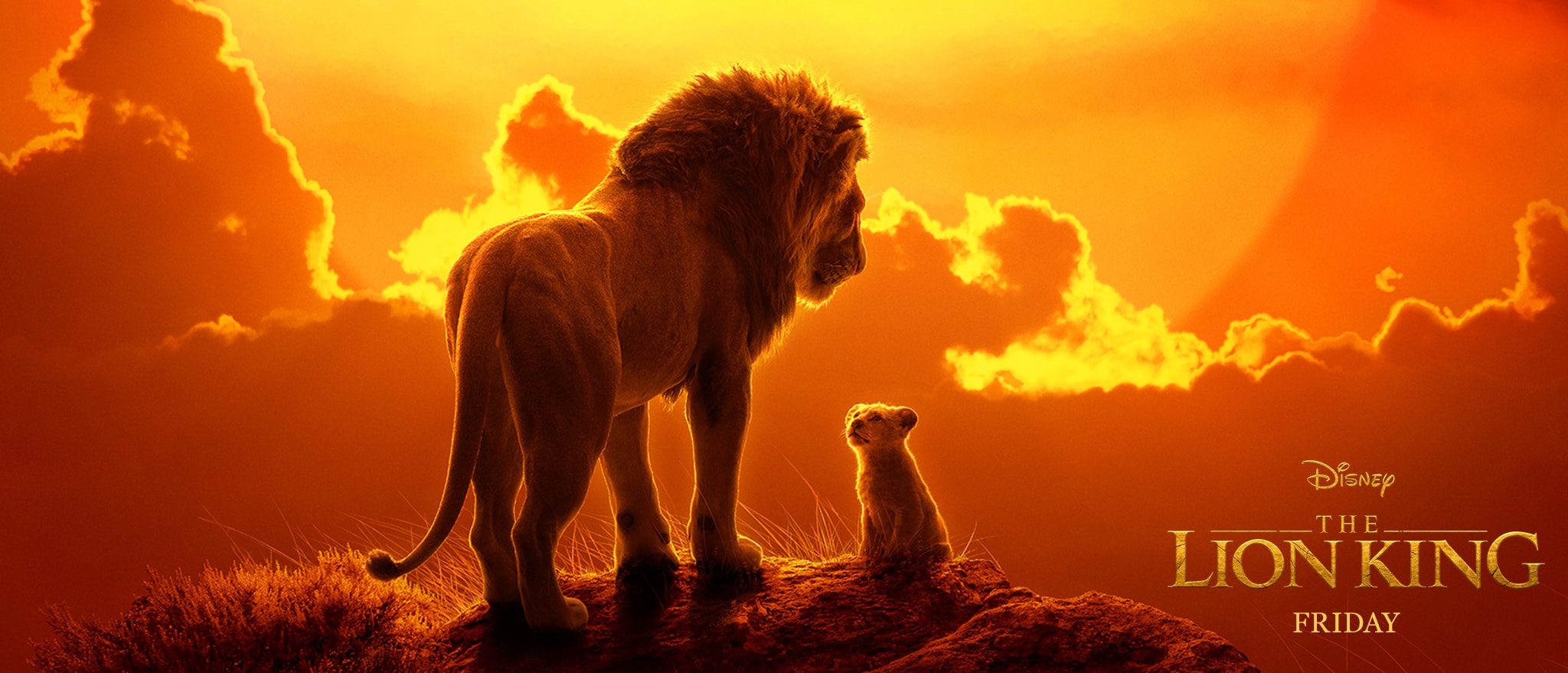The Lion King
Posted on July 16, 2019 at 1:22 pm
B +| Lowest Recommended Age: | 4th - 6th Grade |
| MPAA Rating: | Rated PG for sequences of violence and peril, and some thematic elements |
| Profanity: | None |
| Alcohol/ Drugs: | None |
| Violence/ Scariness: | Peril and violence, very sad and scary death of a parent |
| Diversity Issues: | None |
| Date Released to Theaters: | July 18, 2019 |
| Date Released to DVD: | October 21, 2019 |

Also, I am not the biggest fan of the original “Lion King.” I would not go as far as this very extreme critique, but it always bothered me that all the animals were supposed to sing happily about the circle of life when that means something very different to those at the lower end of the food chain to those at the top. The idea of Simba’s right to the throne made me uneasy (Nala is much more worthy, or maybe let the lions choose who is best). And I never got past the Hakuna Matata idea that a good way to deal with life’s problems is to run away from them. Plus, how can they call this live action when the animals are CGI?
All of which is to explain that I was very pleasantly surprised and it won me over. The opening scene is a shot for shot recreation of the original, but more spectacularly beautiful, thanks to Director of Photography Caleb Deschanel (the cinematographer of the most beautiful film of all time, The Black Stallion). The quality of the light, the texture of the terrain, the fur, the feathers all lend a grandeur to the story. And the music is sumptuously produced, evoking the holiness of the natural world.
We all know the story, which draws from Shakespeare (“Hamlet” and “Henry IV”), the myths collected by Joseph Campbell (the hero’s journey), and perhaps from the Bible as well (the prodigal son). Simba is the lion prince, born to rule as far as he can see. But his father, Mufasa (voiced again by James Earl Jones, as in the original) teaches him that the ruler serves those he rules. Simba will be responsible for their welfare, Mufasa tells him. “It will be yours to protect…A true king searches for what he can give.” Still, Simba chafes at the rules and dreams of a day when he is king and can do anything he wants.
Mufasa’s brother Scar (Chiwetel Ejiofor) wants to be king. He resents Mufasa and Simba. In a brutal scene that will be too intense for younger children and many older children and adults, he kills Mufasa and blames Simba. The cub is devastated, and runs away. He is befriended by a warthog (Seth Rogen as Pumbaa) and a meerkat (Billy Eichner as Timon), who sing to him about the pleasures of a worry-free life. (Eicher has a great singing voice! Who knew?)
The lions believe Simba died with his father. But when Nala (Beyonce) finds him, she tells him that Scar and his hyena henchmen have all but destroyed their community. Can he be the hero they need?
This version makes an attempt to address some of the issues that concerned me in the animated feature, though Mufasa’s explanation of the circle of life is not entirely reassuring. But director Jon Favreau (“Iron Man,” “Chef,” Happy in the Avengers movies) brings together the realism of the animals, who come across as authentic and expressive, with a capable balancing of humor and drama. John Oliver’s Zazu and Keegan-Michael Key’s Kamari are comic highlights. Was this necessary? No. But it earns its place.
Parents should know this film has some intense scenes of peril and violence, very sad death of a parent as the child watches, severe feelings of guilt and abandonment, murder and attempted murder, predators, some potty humor, and references to the “circle of life.”
Family discussion: Why is a group of lions called a “pride?” What from your family do you carry with you? What is the difference between Mufasa’s idea about responsibility and heritage and Timon’s idea that nothing matters?
If you like this, try; the animated “Lion King” and “Lion King 1 1/2” and “The Black Stallion” a beautiful film from the same cinematographer

